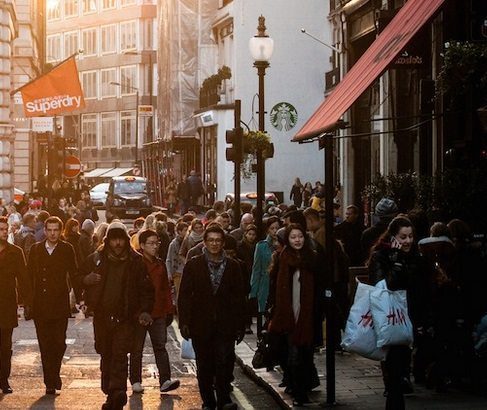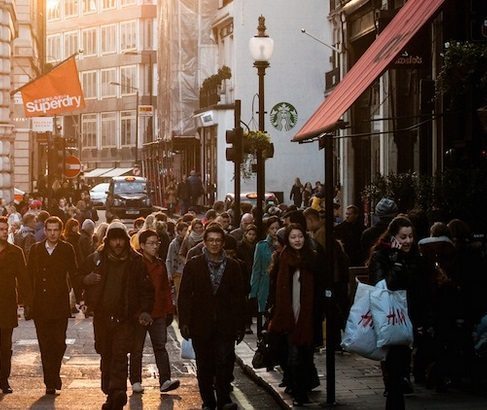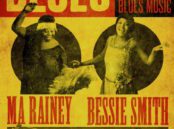[dropcap style=”font-size:100px; color:#992211;”]I[/dropcap]
t has become cool to act as if ‘political correctness’ is some kind of cultural oppression, and to elevate those who challenge it as subversive, radical, fresh-thinkers.
This is part of the attractiveness of parties like UKIP, presenting themselves as a slap in the face to the mainstream. But it is actually the defense, not the dismantling of political correctness that is a radical act in modern Britain, and here is why.
What is Political Correctness?
Well, firstly, the term was actually coined by its detractors. Originating among the Communists and Socialists of the mid 20th century to refer pejoratively to language that followed the party line, it was only in the early 90s, starting in the US but swiftly migrating to the UK, that the term ‘politically correct’ became a sort of all encompassing rejection of multiculturalism, anti-discrimination policies and all the things that amount to basic good neighbourliness. [quote]something really amazing about
political correctness. Done properly,
it’s basically just being a thoughtful,
curious, compassionate human being[/quote]
So, there isn’t actually any such thing as political correctness. There is only discrimination – those against it, and those for it. Those for it, wish to wrap up their ignorance and fear in a pretty bow called victimhood – “We are being oppressed! The powers that be won’t let us discriminate!”
These people often have zero idea what actual oppression truly feels like, so in fairness, limits on their behaviour is about the closet thing they will ever experience to genuine oppression. It is a forgivable mistake in children, but it is unacceptable in adults.
Has Political Correctness Gone Mad?
If being opposed to ‘political correctness’ is so avante garde, so very cutting edge, then how come almost everyone is attacking it and almost nobody is defending it?
This post is inspired by a Stewart Lee segment from 2007, which I was reminded of thanks to the wonder of twitter. Part of the panel for a Radio 4 show about challenging sacred cows (ideas so ubiquitous as to be unchallengeable), when 84% of the audience agree with the statement that political correctness has indeed gone mad, Lee throws an eloquent, articulate shit fit. His basic point is that it is not political correctness itself, but the idea that political correctness has gone mad that is the actual sacred cow – and that the audience are ‘idiots’ for thinking otherwise.
But in fact, the audience make his point for him. Radio 4, the internally and externally recognised capital of Britain’s rioja liberals, is today producing audiences of which 84% agree with the leader of UKIP. This is the ‘liberal, media elite’ Farage asserts are his opposition?
I happen to agree with Lee, something has gone mad, but it is not political correctness. What’s mad here is the willingness of people to spout such ideologically vacant and socially dangerous statements without pausing to consider a) the meaning, b) the rationale or c) the consequences of their words. In short, people are being idiots about political correctness.
What did Political Correctness ever do for us?
People are idiots about political correctness when they fail to separate their feelings from the impact of political correctness on our society. For example, the two big arguments against political correctness that I hear are:
- It’s about stopping people from saying what they think because it might offend somebody else. So we’re all walking on tippy toes worried about putting out foot in it rather than being ‘authentic’.
- It’s all middle class, liberal snobbery – about sneering at the working class because they use the ‘wrong’ words.
Is there merit in these criticisms? Totally. Like any idea, political correctness too can become a tool of prejudice itself.
But also, these complaints can be translated into “It’s not my fault”, and “Stop trying to change me”. Both are default human responses to feeling challenged. You’d have the same response if someone pulled you up on the way you drive, or dress, or wash-up. They’re valid as experiences, but say nothing about political correctness itself.
So, separate from our thoughts and feelings about having our behaviour and opinions challenged – what has been the actual impact on our society of this idea that we should basically think before we speak and avoid the use of inflammatory stereotypes?
Lee uses a fine example to underscore the purpose of political correctness, the Smethwick by-election of 1964, where Conservative Peter Griffiths ran on the line “If you want a nigger for a neighbour, vote Liberal or Labour”. My mother, a mixed raced child of Caribbean and British parentage grew up in that world. Four years later, Enoch Powell gave his “Rivers of Blood” speech – warning that “In this country in 15 or 20 years’ time the black man will have the whip hand over the white man.” A poll at the time showed 74% of the public agreed with his sentiments. B&Bs had signs in the window like the one below:
 When my grandfather and other Caribbean immigrants like him were seeking to enter employment on Bristol’s bus network – the white workers went on strike.
When my grandfather and other Caribbean immigrants like him were seeking to enter employment on Bristol’s bus network – the white workers went on strike.
By the time I was a child growing up in the 80’s, I still got called a ‘coon’, a ‘wog’, and various other racial slurs. But this happened rarely, and those doing the name-calling were told they were in the wrong and punished. Why? Political correctness. It became unacceptable, stigmatised, to be overtly racist – to call your black dog, or your black neighbour, ‘nigger’.
But political correctness as a mission, was by no means complete. Our corner shop run by an Indian family was known as “The Paki shop”, even by my mixed race family. Homeless people were called “Tramps”. If someone did something stupid you called them a “Retard” or a “Spastic”. Racist jokes were still going great guns, just two that I can remember not only hearing, but telling while laughing my head off:
“How do you drown a Black man?
Pop his lips”
and of course:
“How do you fit 100 Ethiopians in a telephone box?
Throw in a meal ticket”
I carried on like this until I left my working class suburb of Bristol and went to a very Middle Class, liberal University where such terms and jokes were absolutely verboten. I felt like I was learning a whole new language, as so many of my cultural reference points were suddenly deemed “offensive”. But that’s just what I called them… I didn’t mean anything by it.
[quote]to suggest that working class
people are inherently bigoted and
it’s somehow anti-working class to
be anti-bigotry is a truly patronising
and inauthentic position[/quote]
As a bi-racial, working class, gay girl – I resented being preached to about what was offensive to this community or that community by privileged, white kids. I couldn’t get my head round it. I only consented at first because of the stigma – who wants to be up there with Jim Davidson and Bernard Manning? – but later, because I realised something really amazing about political correctness. Done properly, it’s basically just being a thoughtful, curious, compassionate human being.
Political correctness provides us with a context in which to see afresh the views, opinions and terms we have been raised on. It gives us the chance to evolve. It gives us the chance to put ourselves in someone else’s shoes for a moment, to appreciate the impact of our words.
It presents us all with the opportunity to pick apart prejudices we never even knew we had, making it possible to make friends and be of service to communities and individuals that previously seemed alien and scary. Political correctness is the gift that keeps on giving. It is the route to freedom from fear, paranoia and superstition that while cementing a small number of friendships, places a barrier between us and the wider world.
It’s not about being offensive, its about being stupid
The bottom line is – political correctness is not actually about quelling ‘freedom of speech’ for the sake of defending others from offense. People get offended about all sorts of things, so eliminating offense is not a valid or worthy goal – and never was the goal. It’s also nothing to do with what class you start from or finish in. Furthermore, to suggest that working class people are inherently bigoted and it’s somehow anti-working class to be anti-bigotry is a truly patronising and inauthentic position to hold – but a very convenient route for rich bigots reaching out to poor bigots (see: Nigel Farage).
Political correctness is about reality. It is about breaking people out of unhelpful and paranoid fantasies, so we can live with each other in greater harmony. It is about bringing people together.
Anyone who seriously believes that the black man holds the whip hand over the white man today, or that the greatest threat to our society is Islam, or that the source of our economic inequality and instability is too many immigrants or people on welfare isn’t (only) being offensive – they are simply profoundly disconnected from reality. Really. They are living in a fantasy world. Worse, that fantasy world has been constructed for them by groups with a vested interest in maintaining the status quo.
There is nothing cool, subversive or radical about being duped into voting and agitating against your own interests through the manipulation of your ignorance and fear. Want to do something truly radical? Open your heart. Share. Volunteer. Think critically. Challenge cultural, social, racial and all other stereotypes. Question your fears. Always be learning. Give up being right all the time. Laugh at yourself.
If we want not only to defend, but expand these traits – we need political correctness, and we need to evolve with it. Anyone wallowing in superiority about using the right words, while retaining the prejudices underneath is not politically correct – they are simply being an arrogant fraud. But that’s not where they will necessarily remain… and the same goes for all those acting out against ‘political correctness’ today.
We all make mistakes, we all hold crappy opinions, and it is a gift when someone is brave enough or arrogant enough to point them out so we can shed them like old skin, and face the world renewed and refreshed.
Regent Street photo: David Marcu
Window photo: Unknown
Kerry-Anne Mendoza is author of the Scriptonite Daily Blog: http://scriptonitedaily.wordpress.com
She is also a contributor to New Internationalist, openDemocracy and the Occupy News Network.
She is a writer, activist and campaigner for social, economic and environmental justice.



















